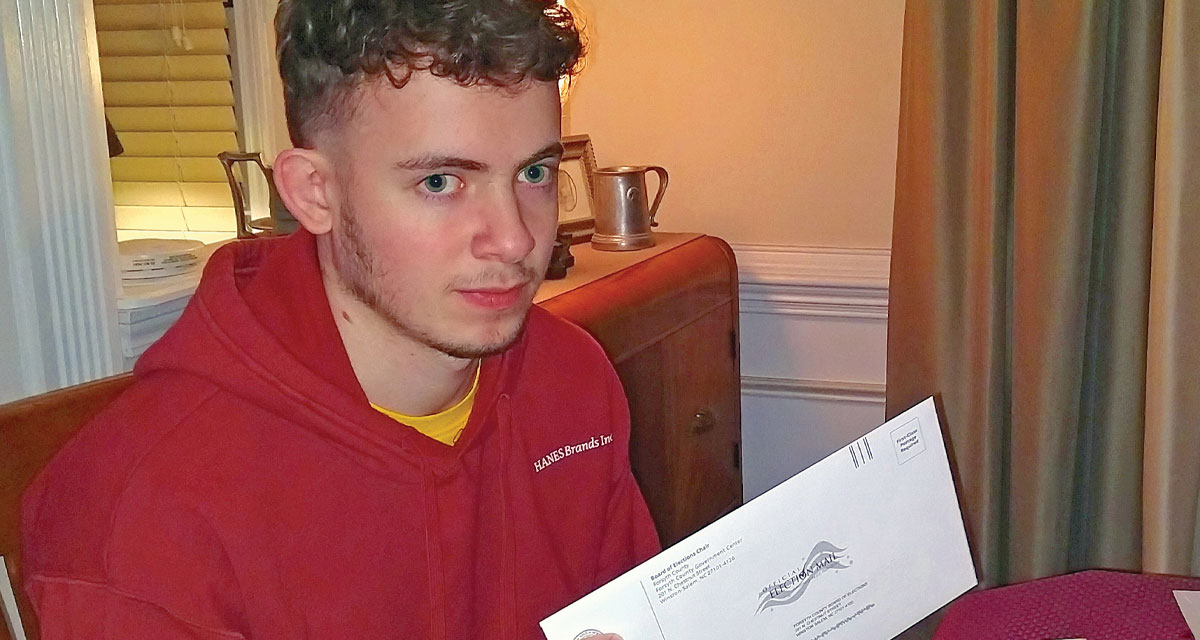As I look back on my sons’ first time voting in an election and anticipating the upcoming Presidential Inauguration, it reminds me of my initiation into politics. It was 1969 and I was a young boy growing up in a small southern town in Virginia. The school I attended was predominantly white. I remember my childhood years fondly. I learned later through history that racism existed during that time, but I wasn’t aware of it. My first introduction to politics was three years later when Richard Nixon ran for re-election for the presidency. I remember everywhere I looked, campaign signs were for Nixon, and everyone I knew, except for my parents, supported him. So, as a young boy with no idea about politics, I went along with the crowd. Later, when Nixon ended the Vietnam War, I felt I had been right. History, however, would indicate that Nixon’s motives for the withdrawal from Vietnam were less virtuous and more for political reasons to get re-elected, knowing his opponent symbolized the popular anti-war movement. (see NPR.org, “George McGovern, an Improbable Icon of Anti-War Movement” October 22, 2012.) On August 9th, 1974, Nixon resigned after facing almost certain impeachment and removal from office.
More recently, I watched a movie entitled The Trial of the Chicago 7 (Paramount Pictures, DreamWorks Pictures, Cross Creek Pictures, Marc Platt Productions, 2020) about an actual trial that took place in 1969 and 1970, whereby eight defendants were accused of conspiracy by the federal government to incite a riot in protest to the Vietnam War during the 1968 Democratic National Convention in Chicago. The film indicates that the Nixon Administration filed the charges after winning the presidential election to discourage Anti-Vietnam War protestors. I won’t spoil it for you, but my point in this example is how Nixon discouraged Anti-Vietnam protestors in 1969 through this widely publicized federal trial, yet ironically, while campaigning for reelection in 1972, he promised a cease-fire to the war if he won reelection. He followed through on that promise on January 27th, 1973, shortly after his inauguration for his second term. One could say politics (and opposition research on his opponent) gave him a change of heart. Unfortunately for those protestors, he was four years too late.
One other note on that 1969 trial, as I said originally, there were eight defendants. Bobby Seale was an African-American man also accused; the remaining defendants were white males. The film shows him being mistreated, implying sensational racism was involved. I remind you this was all taking place unbeknownst to me while I lived my comfortable life in small-town America. In my world, racism didn’t exist, or so I thought, nor did I know that some protestors in Chicago were possibly saving my oldest brother and millions more from having to serve in Vietnam as a result of their acts of bravery. Not discounting those brave, heroic souls who were asked to actually serve in this war.
This brings me to October 2020. In a year involving a failing economy, a global pandemic, racial injustice, and nationwide protests, there was the presidential election. My family requested absentee ballots to avoid the crowds on Election Day and the risk of infection by the virus. We weren’t alone, as more citizens voted absentee in this election than any other time in history. Fifteen days before the election, my family sat around our dining room table and we each took out our ballot envelopes. It would be my two sons’ first election to be a part of. My oldest son, however, was not present, deciding instead to take part in person for early voting. So, it was just my wife, my youngest son, and myself. I noticed my wife was eagerly ready to tear open the envelope and mark her ballot. My youngest son seemed the same, although it appeared to be more like something he simply wanted to get over with. I was concerned he wasn’t realizing the magnitude of this powerful responsibility he held in his hands, and I didn’t want to let the moment go unnoticed.
Recalling how my first introduction into politics went, along with my naiveté of the social injustice taking place “outside of my world,” I wanted to confirm he felt fully informed in this moment and ready to cast his vote. I asked him if he’d done his homework and understood the candidates’ platforms, at least the major political positions up for election. He acknowledged he was aware and felt comfortable with his choices, knowing his vote was as important as anyone else’s.
I didn’t ask him afterward whom he voted for. I decided to let that be his own experience. I have no doubt he was more informed than I was back in the day. In the end, I was grateful that he acknowledged the relevance of the moment and realized he was representing his generation and the future of our country. That’s all I could ask for.
To comment and see more, visit theviewfrommysection.com.



















